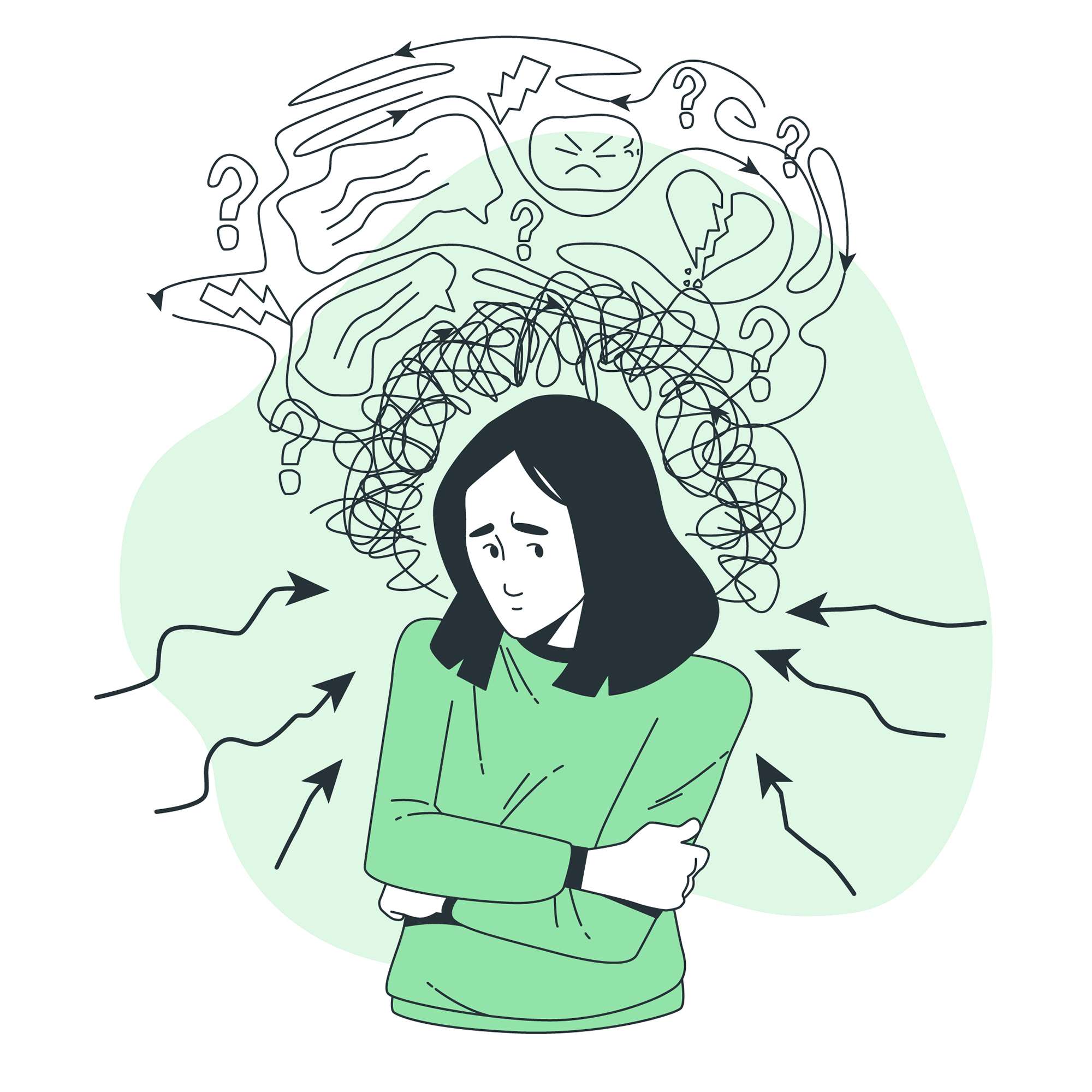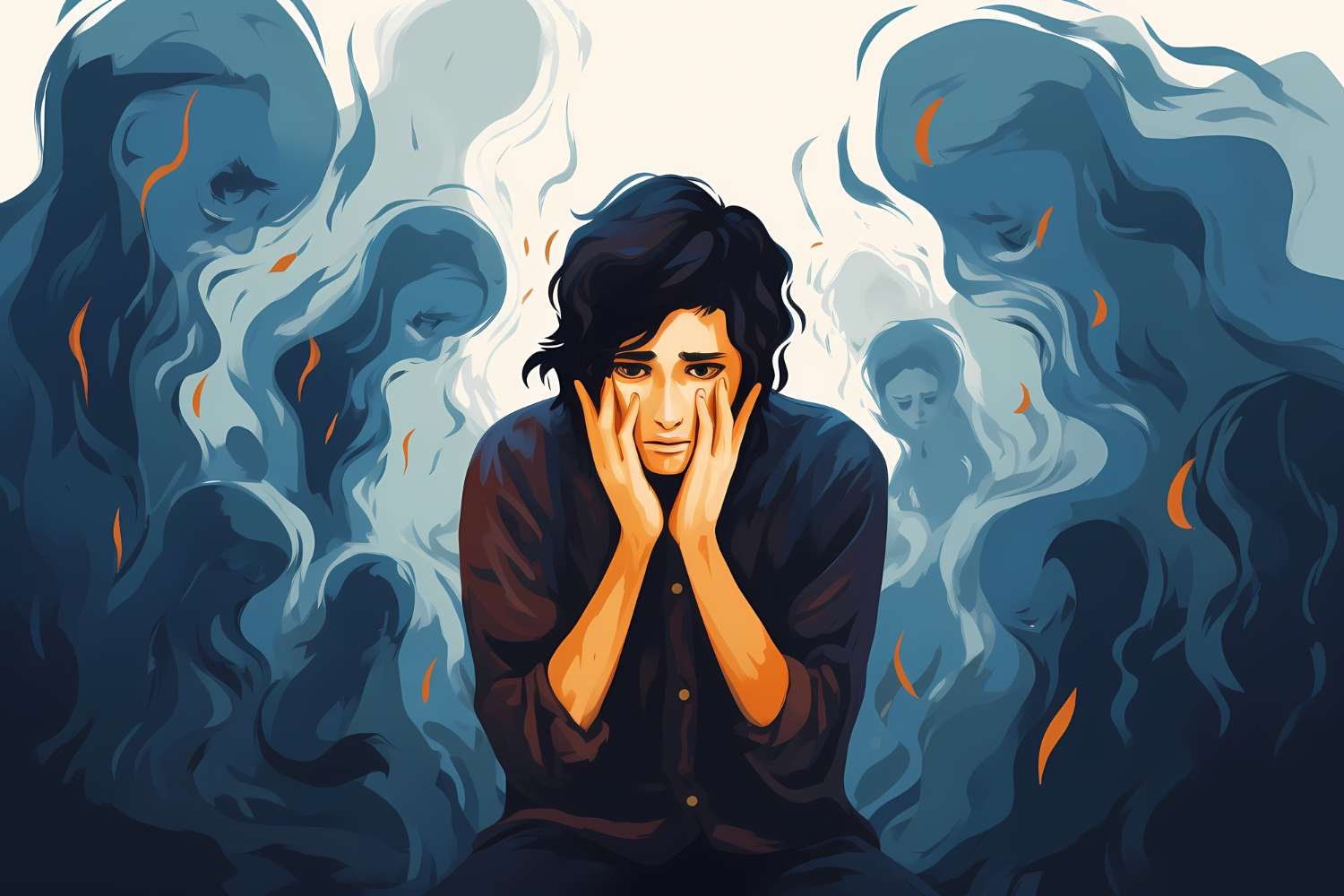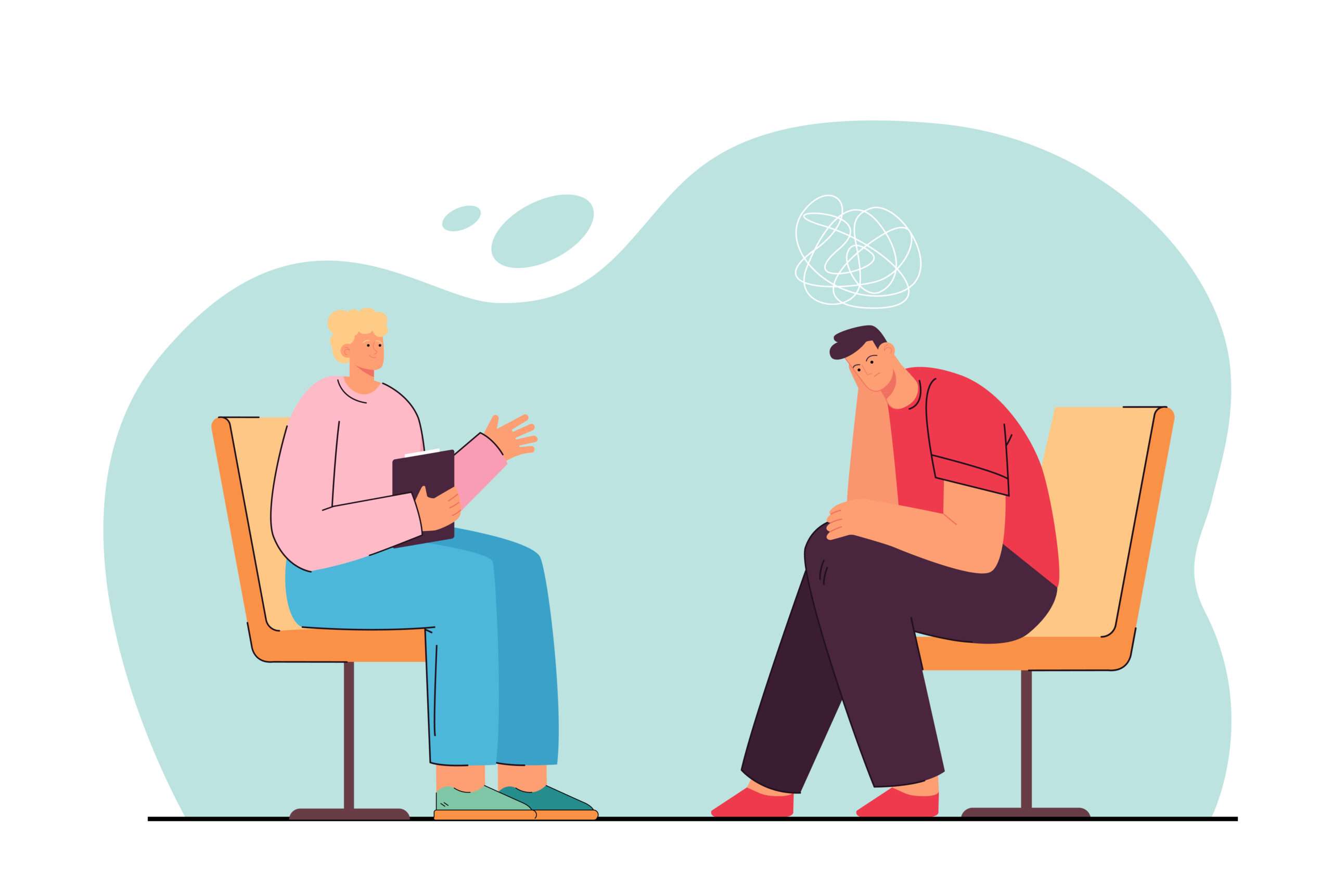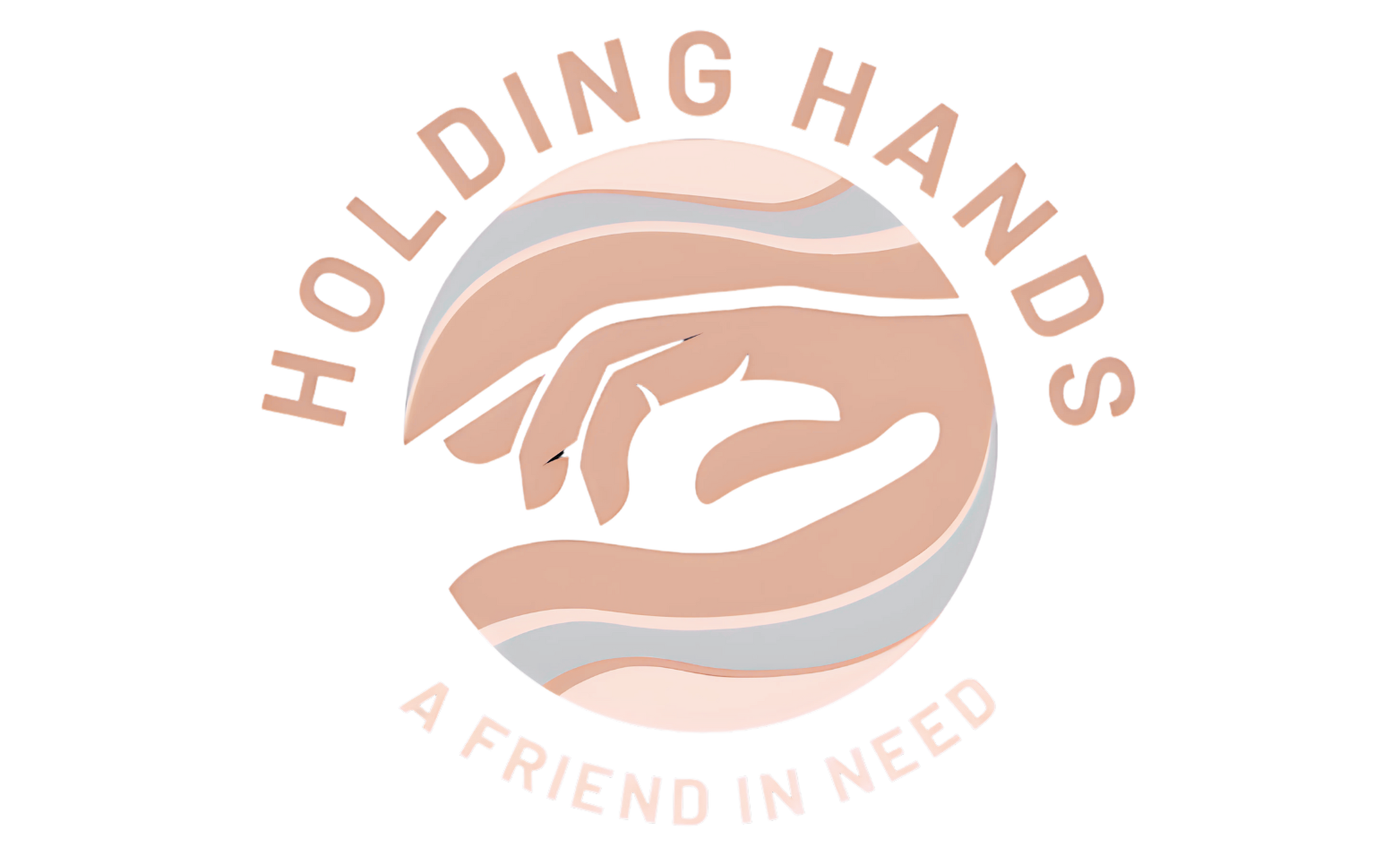Learn about depression, its causes, symptoms, and treatment options. Find out how to recognize and manage depression for better mental health.
Table of Contents
Toggle
What is Depression?
Depression is not merely a transient feeling of sadness; it is a significant and debilitating mood disorder that profoundly affects a person’s thoughts, emotions, and daily functioning. It manifests through persistent feelings of melancholy, frustration, or anger, which can substantially disrupt an individual’s routine activities.
If you or a loved one is struggling with these feelings, don’t hesitate to reach out to one of our professional psychologists for support.


Types of Depression
According to research, There are several types of depression, each with unique features and treatment methods:
Major Depressive Disorder (MDD):
MDD is a severe form of depression where individuals endure continuous and profound feelings of sadness and despair. These emotions significantly hinder one’s ability to perform daily tasks such as working, eating, and sleeping. Those affected may also lose interest in previously enjoyed activities and could experience unwarranted feelings of worthlessness or guilt. Treating MDD usually involves a mix of medications, like antidepressants, and psychotherapy to help sufferers cope with their symptoms and enhance their mood.Persistent Depressive Disorder (Dysthymia):
This mild, yet chronic form of depression lasts for two years or more. Dysthymia’s symptoms are less severe than those of Major Depressive Disorder, but their persistent nature can degrade life quality over time. Individuals may experience a frequent state of mild depression and face challenges like low self-esteem and hopelessness. Treatment typically requires a long-term approach, including psychotherapy and sometimes medications.Bipolar Disorder:
Characterized by dramatic shifts in mood, Bipolar Disorder includes periods of intense emotional highs (mania or hypomania) and lows (depression). The manic phase might lead to excessive energy, euphoria, or irritability, while the depressive phase resembles Major Depressive Disorder. Managing this disorder often involves mood stabilizers, psychotherapy, and occasionally antidepressants.Seasonal Affective Disorder (SAD):
SAD is a seasonal depression that commonly occurs during the winter months when daylight decreases. Symptoms often include lethargy, pervasive sadness, withdrawal from social interaction, and a general sense of hopelessness. Light therapy, which mimics natural sunlight, is a prevalent treatment, alongside psychotherapy and medication.Postpartum Depression:
Some women experience Postpartum Depression after childbirth, marked by intense sadness, anxiety, and exhaustion that can complicate maternal responsibilities. Unlike the milder “baby blues,” this condition is severe and may persist for an extended period. Treatments include counseling, support groups, and medication to help mothers manage symptoms and bond with their newborns.
Difference between depression and occasional sadness
Unlike the typical emotional response to specific life events known as occasional sadness, clinical depression involves persistent and intense emotional distress that significantly impairs an individual’s ability to function and requires professional treatment. These symptoms are severe enough to warrant a medical diagnosis and are not typically alleviated without intervention.
Symptoms and Impact
Depression’s impact is extensive, affecting emotions, physical health, and behaviors. It can lead to significant weight changes, sleep disturbances, fatigue, and reduced concentration. Individuals might withdraw from social activities, lose interest in hobbies, and experience recurring thoughts of death or suicide.
Treatment and Management
Managing depression effectively often requires a multifaceted approach, including pharmaceutical interventions, therapeutic strategies, and lifestyle modifications. Antidepressants and psychotherapy are foundational treatments that address symptoms and underlying issues, whereas adopting a healthy lifestyle—incorporating exercise, balanced nutrition, and adequate sleep—plays a supportive role in recovery.
What are the Causes of Depression?
The exact causes of depression are complex and not fully understood, but several factors are believed to be involved:
Genetic Influence:
Genetics play a crucial role in the likelihood of developing depression. Having family members, particularly close relatives like parents or siblings, who have experienced depression can increase your risk. While a family history doesn’t guarantee that you will have depression, it does raise your risk above those with no such family history. Some genes have been identified that might make individuals more prone to depression, but their presence alone isn’t a definitive predictor of developing this condition.Neurochemical Factors:
Depression may also stem from imbalances in the brain’s neurochemicals. Neurotransmitters, the brain’s chemical messengers, are crucial in this regard. An imbalance in neurotransmitters like serotonin, dopamine, and norepinephrine, which are vital for mood regulation, might lead to depression. Medical treatments often aim to correct these imbalances with specific medications.Life Circumstances:
Life events and circumstances often trigger depression. Traumatic experiences, the loss of a loved one, the breakdown of significant relationships, job loss, or financial troubles can all trigger depressive episodes. The emotional stress from such events can be profound and debilitating, making everyday functioning challenging.Health Conditions:
Various medical conditions may trigger or worsen depression. Chronic diseases such as heart disease, diabetes, and cancer can degrade life quality and functionality, potentially leading to depression. Other conditions, including insomnia, chronic pain, or ADHD, also elevate the risk for depression, as the ongoing challenges and limitations imposed by these issues can foster feelings of despair.
What are the Symptoms of Depression?
Research says that Symptoms of depression can vary from mild to severe and can include:
Emotional Symptoms:
Constant feelings of sadness, emptiness, or hopelessness are hallmark emotional symptoms of depression. These are not fleeting; they are intense and persistent, often making it difficult for sufferers to experience pleasure or joy in previously enjoyable activities.
Behavioral Symptoms:
Depression often leads to a loss of interest in previously enjoyed activities. It might cause withdrawal from social interactions as individuals may feel they cannot derive joy from these anymore. This social isolation can further aggravate feelings of loneliness and sadness.
Physical Symptoms:
Physical signs of depression include significant energy loss, leading to fatigue and lethargy. Changes in appetite and sleep patterns are also common, either increasing or decreasing significantly, which can affect physical health and worsen the depressive state.
Cognitive Symptoms:
Depression can impair cognitive abilities, affecting concentration, decision-making, and clarity of thought. Tasks that were previously manageable may become daunting, affecting an individual’s ability to function effectively at work or in daily activities.

How Can You Prevent Depression?
While it’s not always possible to prevent depression entirely, there are ways to minimise the risk and manage early symptoms:
Fostering Healthy Relationships:
Cultivating strong, supportive relationships can be a powerful deterrent against depression. Emotional support from family and friends can mitigate factors like stress and isolation that often precipitate depressive episodes. These connections provide comfort and a sense of community, helping you navigate through difficult times. Promoting honest communication and dedicating time to these relationships are essential for building a reliable support network.Stress Reduction Techniques:
Implementing stress reduction techniques can also play a critical role in staving off depression. Engaging in mindfulness, meditation, or yoga can significantly decrease daily stress. These practices assist in calming the mind and reducing anxiety, thereby enhancing emotional stability. Consistent engagement in such activities helps in managing stress more effectively and maintaining a stable mood.Consistent Physical Activity:
Regular exercise is a vital strategy in preventing depression. Physical activity boosts endorphin levels, which are natural mood enhancers. Additionally, exercise can elevate self-esteem, regulate sleep patterns, and lessen anxiety and stress. Pursuits such as walking, cycling, swimming, or participating in team sports are not only beneficial for physical fitness but also for mental well-being.Sufficient Sleep:
Adequate sleep is essential in the prevention of depression. A consistent sleep schedule helps regulate mood and supports mental health. Insufficient sleep can cause irritability, heightened stress, and focus difficulties, which may lead to depression. Ensuring 7 to 9 hours of sleep nightly can profoundly affect your emotional resilience and stress management capabilities.Nutritious Diet:
A balanced diet is key in preventing depression. Consuming a variety of fruits, vegetables, and lean proteins can boost mood and energy levels, providing the brain with necessary nutrients for optimal function. Limiting intake of caffeine, sugar, and processed foods can help maintain mood stability. A healthy diet is crucial for brain health and can mitigate depression risk.
How to Diagnose Depression?
Diagnosing depression involves a variety of steps to ensure an accurate understanding of an individual’s emotional state:
Physical Examination:
Typically, the first step involves a comprehensive physical exam to evaluate overall health, which may uncover physical contributors to depressive symptoms, such as vitamin deficiencies or hormonal imbalances. Addressing these physical health aspects is vital for a precise diagnosis and treatment.Laboratory Testing:
Lab tests, including blood tests, are frequently utilized to exclude other conditions that might present with depressive-like symptoms, such as thyroid dysfunction or hormonal issues. These conditions can affect mood and energy, thus it’s crucial to rule them out before proceeding with a depression-specific treatment plan.Psychological Assessment:
A detailed psychological evaluation is essential for diagnosing depression. This involves discussions about one’s feelings, thoughts, and behaviors with a mental health professional. Insights into daily activities, sleep patterns, appetite, and cognitive processes help gauge the severity of depression and tailor a treatment plan suited to the individual’s needs.
What are the Complications of Depression?
If left untreated, depression can lead to a variety of emotional, physical, and social complications:
Isolation and Social Disengagement:
A common outcome of untreated depression is a profound withdrawal from social contexts. Individuals battling depression may shun social engagements, leading to a sense of isolation. This isolation can intensify feelings of solitude and despair, perpetuating a self-sustaining cycle of depressive symptoms. The lack of social engagement deprives individuals of the necessary emotional support that could potentially ameliorate their condition.Risk of Substance Dependency:
There is an increased risk of substance use among those with untreated depression as individuals might seek alcohol or drugs to self-medicate. This behavior can escalate into dependency, complicating the emotional disorder with addiction, which can obstruct recovery and introduce additional health challenges.Deterioration of Physical Health:
Untreated depression can adversely affect one’s physical health. It may compromise the immune system and increase susceptibility to physical illnesses. The condition can amplify pain perception and result in neglect of personal health, such as inadequate nutrition and insufficient physical activity. Such neglect can worsen pre-existing health conditions and trigger new health issues.Suicidal Ideation and Actions:
In extreme cases, prolonged untreated depression may lead to thoughts or acts of suicide. Individuals may feel overwhelmed by their emotional pain and consider suicide as a means to escape. It is imperative to seek immediate help in such situations to prevent this dire consequence through effective intervention and support.

When to See a Doctor for Depression?
It is crucial to seek help if you or someone you know is experiencing signs of depression, especially if they last for more than two weeks:
Persistent Sadness or Despair:
Ongoing feelings of sadness or despair that do not subside with changing circumstances are indicative of depression. This persistent state of low mood can pervade all aspects of life, diminishing the ability to enjoy or engage in daily activities.Noticeable Mood or Behavioral Changes:
Significant alterations in mood or behavior, such as losing interest in previously enjoyed activities, erratic sleep patterns, unexplained fatigue, or struggling with daily routines, suggest that depression may be affecting overall functionality and quality of life.Urgent Thoughts of Self-Harm or Suicide:
Immediate medical intervention is critical when there are thoughts of self-harm or suicide. These are signs of severe depression and require urgent care from health professionals.
Recognizing when to seek help can lead to earlier treatment, which greatly improves the effectiveness of treatment strategies.
What are the Treatment Options for Depression?
Treatment for depression is diverse and depends on the severity and type of symptoms. As per research Here are some commonly used treatment options:
Medication
Antidepressants:
These medications are designed to correct imbalances in brain chemicals that influence your mood.
Psychotherapy
Cognitive Behavioral Therapy (CBT):
This therapy focuses on altering negative thoughts and behaviors that contribute to depression.Interpersonal Therapy (IPT):
This method works on enhancing interpersonal skills and boosting self-esteem.Psychodynamic Therapy:
This approach seeks to uncover and resolve deep-seated emotional conflicts.
Lifestyle Modifications
- Implementing regular physical activity, a balanced diet, and adequate sleep can significantly alleviate depressive symptoms.
Support Groups
- Engaging with others who are dealing with similar issues can provide emotional support and valuable coping techniques.
Advanced Treatments
- In cases where traditional methods are insufficient, options like Electroconvulsive Therapy (ECT) or Repetitive Transcranial Magnetic Stimulation (rTMS) might be considered.
If you are going through a tough time and need someone to talk to, we are here for you. Reach out to us for a heartfelt chat or a comforting call with one of our caring psychologists. You are not alone in this journey, we are always here for you.




